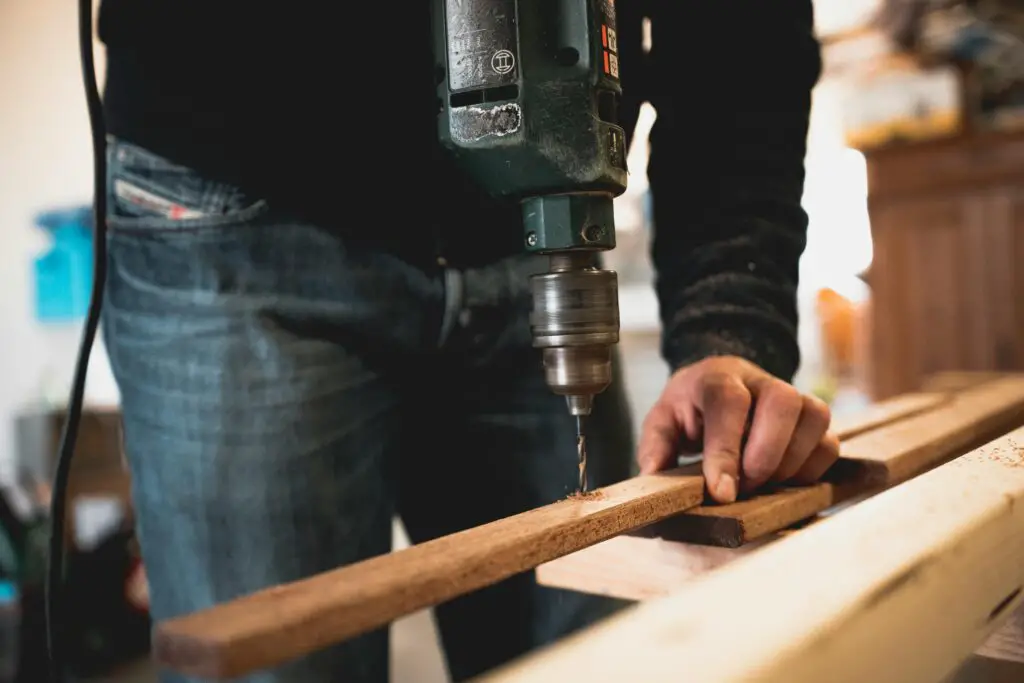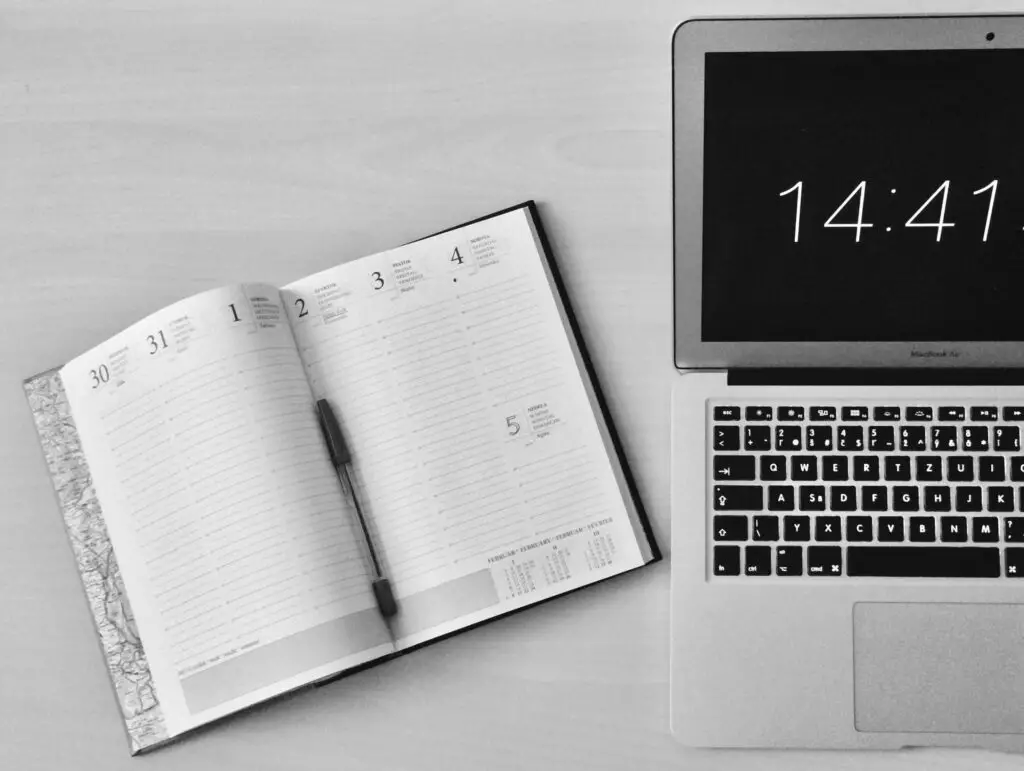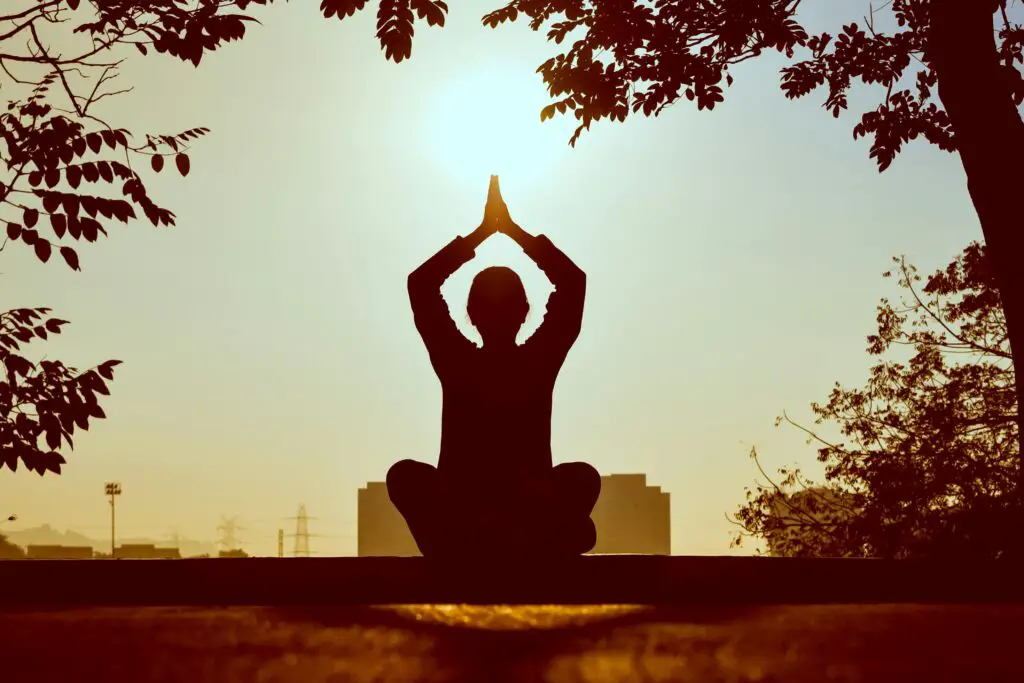1. They Took Long Walks Every Day

Your ancestors didn’t need a fancy gym membership to de-stress—they simply walked everywhere. Whether they were heading to the market, visiting a neighbor, or working on the farm, walking was a built-in part of life. The rhythmic movement and fresh air helped clear their minds, something modern science backs as a natural mood booster. Today, many of us are glued to screens and barely get our steps in unless we make a conscious effort. Instead of using walking as a necessity, we now treat it as a chore. But those daily strolls kept stress levels in check and allowed for moments of quiet reflection. Even better, they provided a chance for social interaction, something we often neglect in our fast-paced world says Loma Linda University.
If you’ve ever gone on a long walk and felt your mind relax, you know exactly why our ancestors thrived with this habit. They didn’t have to carve out “self-care” time—it was already part of their routine. Unlike us, they weren’t doom-scrolling on their phones while pacing around their living rooms. Their walks gave them time to observe nature, process their thoughts, and have face-to-face conversations. This simple act made them more resilient to stress without them even realizing it. Maybe it’s time to bring back the art of an aimless walk.
2. They Had Stronger Social Circles

Back in the day, people relied on their communities for support, and it made a huge difference in how they handled stress. Whether it was family, neighbors, or a religious group, they always had someone to lean on. Stressful situations didn’t feel so overwhelming when they had others to share the burden. Today, many people feel isolated despite being more “connected” than ever through technology. A quick text message or social media comment doesn’t provide the same comfort as sitting with someone in person. Our ancestors gathered regularly, sharing meals, stories, and laughter, which naturally relieved tension says Verywell Mind.
When life got tough, they had a built-in support system that made challenges feel manageable. Contrast that with today, where many of us feel like we have to figure everything out on our own. Having close relationships has been proven to reduce stress, yet we often prioritize work and responsibilities over genuine connection. Our ancestors didn’t need scientific studies to tell them that strong bonds were good for their mental health. They just knew that having people to talk to made everything a little easier. Maybe it’s time we stop texting and start talking again says Times Virginian.
3. They Worked With Their Hands

Unlike today’s desk-bound jobs, most of our ancestors engaged in physical, hands-on work. Whether it was farming, sewing, woodworking, or cooking from scratch, their daily tasks kept them active and engaged. There’s something incredibly therapeutic about working with your hands, and modern psychology agrees. Activities like knitting, gardening, and even washing dishes can lower stress and boost mental clarity. The repetitive motions help calm the mind, much like meditation. Our ancestors didn’t overanalyze this—they just knew that doing something productive felt good says CBS News.
Now, many of us spend hours hunched over screens, barely moving except to type or scroll. This disconnect from physical tasks makes stress pile up with no natural outlet. Even small efforts, like cooking a homemade meal or fixing something instead of tossing it, can bring back that sense of satisfaction. It’s not just about getting something done; it’s about the process itself being soothing. Maybe our ancestors had the right idea—keeping their hands busy kept their minds at ease.
4. They Spent More Time in Nature

Our ancestors weren’t trapped indoors all day like we are now. Whether they were working outside, gathering food, or just sitting on a porch, they spent a lot of time in nature. Being around trees, fresh air, and open spaces naturally lowers stress levels. Studies today confirm that even a short time outside can reduce anxiety and improve mood. But our ancestors didn’t need research to tell them that being outside made them feel better. They lived in sync with the seasons and appreciated the natural world in a way we often don’t.
Nowadays, many of us go from our homes to our cars to our offices without ever really stepping outside. Artificial lighting and recycled air don’t exactly do wonders for our stress levels. Even a simple habit, like drinking your morning coffee outside or taking a short break in the sun, can make a difference. Our ancestors didn’t have to remind themselves to “go touch grass”—it was just part of life. Maybe it’s time to step away from our screens and step outside more often.
5. They Had Set Routines

There’s comfort in knowing what to expect, and our ancestors understood this better than we do. They had structured days filled with predictable tasks, which helped reduce uncertainty and stress. Today, our schedules are all over the place, filled with constant notifications, shifting deadlines, and last-minute changes. This lack of routine can leave us feeling overwhelmed and mentally exhausted. Our ancestors woke up and went to bed at the same time, ate meals at regular hours, and had a clear sense of daily purpose.
While we might not want to live exactly like they did, there’s something to be said for bringing back routine. Having consistent habits, like a morning walk or a set bedtime, can do wonders for stress levels. It’s not about rigid schedules but rather creating a sense of stability. Our ancestors thrived because they didn’t constantly have to make decisions about their day—they just followed a rhythm. Maybe a little predictability isn’t such a bad thing.
6. They Wrote Things Down

Journaling wasn’t just a hobby for our ancestors—it was a necessity. They kept diaries, wrote letters, and documented their thoughts regularly. This simple practice helped them process emotions and work through stress in a healthy way. Today, we keep everything bottled up or vent in unproductive ways, like ranting online. Writing things down forces us to slow down and think, which naturally reduces anxiety. Our ancestors didn’t overcomplicate this—they just put pen to paper whenever they needed clarity.
Many of us could benefit from bringing this habit back into our lives. Instead of endlessly scrolling through social media, consider jotting down your thoughts at the end of the day. Even making a simple to-do list can help bring order to chaos. There’s a reason therapists recommend journaling—it works. Maybe our ancestors were onto something when they poured their thoughts onto the page instead of into the void of the internet.
7. They Prioritized Sleep

Without artificial lighting and endless distractions, our ancestors got way more sleep than we do. They followed the natural rhythms of the sun, going to bed early and waking up with the sunrise. Lack of sleep is one of the biggest contributors to stress today, yet we often treat rest as optional. Our ancestors didn’t have to battle blue light from screens or stay up late binging TV shows. They simply let their bodies rest when they needed it.
If you’ve ever felt more anxious after a bad night’s sleep, you know how much it impacts stress levels. Instead of pushing through exhaustion, consider prioritizing sleep like our ancestors did. Create a bedtime routine, limit screen time before bed, and let your body recharge properly. Our ancestors didn’t see sleep as a luxury—it was just part of life. Maybe it’s time we treat it the same way.
8. They Practiced Deep Breathing Without Realizing It

Our ancestors may not have had yoga classes or guided meditation apps, but they naturally engaged in deep, rhythmic breathing throughout the day. Whether they were tending to crops, hauling water, or sitting by the fire, their slower, more physically engaged lifestyles encouraged mindful breathing. Unlike today, where stress causes shallow, rapid breaths, they instinctively knew that taking slow, deep breaths helped them stay calm. Without modern distractions, they were more in tune with their bodies and breath.
Nowadays, we have to remind ourselves to take a deep breath when things get overwhelming. We rush from one task to another, barely pausing to breathe deeply, which only adds to our stress. Science now proves what our ancestors seemed to know all along—controlled breathing activates the body’s relaxation response. Something as simple as inhaling deeply through the nose and exhaling slowly can lower cortisol levels and ease tension. Maybe it’s time we stop overcomplicating stress relief and just breathe.
9. They Ate Whole, Natural Foods

Our ancestors didn’t have ultra-processed snacks or energy drinks loaded with sugar and caffeine. Their diets consisted of fresh, whole foods that provided steady energy and nutrients to support their bodies and minds. Without constant spikes and crashes from processed foods, their stress levels were naturally lower. What we eat has a direct impact on our mood, and modern diets filled with additives and preservatives aren’t doing us any favors. Our ancestors got their nourishment from the land, not from a vending machine.
Today, stress eating often means grabbing whatever is convenient, even if it makes us feel worse later. But food can be a tool for stress management when chosen wisely. Eating more whole foods, like our ancestors did, can help regulate blood sugar, improve brain function, and promote a sense of well-being. They didn’t need fancy supplements or fad diets—just real, nourishing meals. Maybe a return to simple, natural eating could help us feel a little less overwhelmed.
10. They Accepted What They Couldn’t Control

Our ancestors lived through hardships that would send many of us into a tailspin—wars, famines, and unpredictable weather that could wipe out an entire season’s crops. Yet, they didn’t waste energy worrying about things they couldn’t change. Instead, they focused on doing what they could and accepting the rest. This mindset helped them manage stress better than we do today, where we try to control every little thing. They didn’t have endless news cycles reminding them of every possible disaster at all times.
In modern life, we often stress over things that are entirely out of our hands. Our ancestors understood that worrying wouldn’t change the outcome, so they practiced a form of mental resilience. They prepared where they could, adapted when necessary, and let go of the rest. Learning to embrace this attitude could help us handle stress with a little more grace. Maybe the key isn’t fighting uncertainty—it’s learning to live with it.
11. They Used Humor to Cope

Life wasn’t easy for our ancestors, but they knew how to laugh through the hard times. Whether it was through storytelling, jokes, or playful teasing, humor was a built-in stress reliever. They didn’t take themselves too seriously, even when facing tough situations. A good laugh helped break tension and brought people together, making hardships feel a little lighter. Even in the darkest times, humor gave them the resilience to keep going.
Today, stress can make us feel weighed down, but laughter is still one of the best antidotes. Science confirms that laughter reduces stress hormones and increases feel-good endorphins. But in our fast-paced, hyper-serious world, we often forget to find the humor in things. Maybe it’s time to take a cue from our ancestors and not let life’s challenges steal our ability to laugh. After all, sometimes the best way to handle stress is to crack a joke and keep moving forward.
